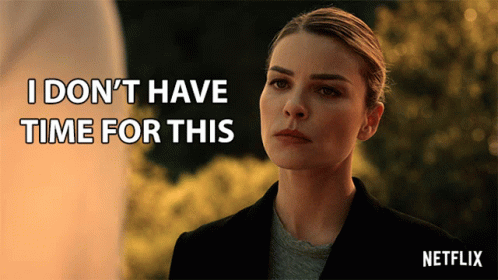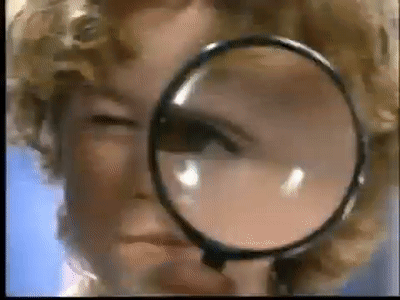How to extract the right information from your clients
I have met many copywriters who dream of writing copy for Agora Inc. (the biggest financial publisher). It makes sense, they all want to work for the best and learn from the best.
But very few get to work with any company affiliated with Agora Inc. One reason for that is that most copywriters don't know how to "construct a sales argument."
If you're one of those copywriters (or you just want to refine your copy chops) keep on reading.
In today's article Cody Meindl reveals how to get your client to feed your sales argument. And he'll share the process he was taught by his mentor Kyle Milligan.
Let's dive in (like my boy Zenitsu here dove in The Infinity Castle)!

But first: context, facts, and other important details about Cody Meindl
Cody is a hard-working and talented copywriter (which is why Kyle Milligan hired him and mentored him) who writes primarily in the financial industry. His sweet spot is writing long-form sales letters (and VSLs).
As of this writing, I know Cody has several controls (best-performing sales letter/promotion that no one has beaten yet). He credits his ability to interview the gurus (as they are called in the financial industry) behind each promotion.

You can subscribe to my newsletter and receive this and similar advice daily in your inbox.
What is one skill (or process) that sets you apart from everyone else in your field?
There's one thing I forgot to tell you about Cody. He is a man of few words.
This is his response to my first question.
"Interview research process."
Now, that's not enough to hook you in. So, let me add a bit of meat to it. Many industries, including financial, are driven by the person (aka guru) behind the product.
So, what Cody means above is that his interview process, during which he extracts insights from the guru, is crucial. I can relate to this, especially when writing copy for coaches or high-ticket products.
I wrote in the past about what this has allowed me to do.

Why is this skill (or process) important, and what has it allowed you to achieve?
I know many copywriters don't even consider interviewing their clients. Heck, many don't even have a proper onboarding process.
But I hope the following section challenges you to rethink your approach.
Here's what Cody shared.
"Working in financial publishing and with infoproducts, it is very guru-focused compared to industries that are more brand-focused. I feel like most writers make the mistake of largely ignoring the guru.
Instead, I like to interview them for on average about 3 hours, and then I will start my research based on what they’ve told me.
This process gives me a great jumping off point for research, and it also ensures that the entire campaign will reflect the gurus ideas and opinions. Also allows me to draw out concrete details and stories that will be useful.
I’ll even usually come back to them for a second interview after I’ve done some research."
I know what you must be thinking...

But here's the truth.
You are used to working with clients who aren't willing to pay adequately for a copywriter. In the financial industry, writing a promotion comes with a solid four-figure fee. Plus, there will be royalty benefits once the promotion goes live.
For people like Cody, it makes sense to invest hours and hours in research since their payday is way higher than a copywriter who writes for a client who says "I just want a simple email."
You can subscribe to my newsletter and receive this and similar advice daily in your inbox.
Onto question numero three.
How does this skill (or process) work, and how can others replicate it successfully?
Research, while crucial, is just the first step. Put differently if you don't know how to utilize your research, you're doomed to fail. And that's not an exaggeration.
One way to help you translate your research into copy is to know your sales argument. That's a fancy phrase that means you must know what you are trying to convince the reader.
Here's how that works for Cody.
You need to know how to construct a sales argument so that you can understand what details you are trying to draw out of the guru.
I don’t want to lead the guru too too much, because any detail can be useful and often times random things will pop up that they don’t even know are useful.
So for a financial product, I would ask them all about the product itself, I’d ask them about their personal history, career, goals, motivations, family, idols, mentors...
And the key here is knowing what you are looking for, if a guru says something like “the reason most folks fail…” “what most people don’t know…” dig into that further and further.
Let's dive deeper on a few points here.

For starters, a sales argument is drawn from two main areas: the product and the guru. That's why Cody is diving deep into understanding both. And he even goes above and beyond to capture the beliefs of the guru.
Remember, the guru is the product (to an extent), and many people buy the product because of the guru.
Then, notice how Cody explains the interview process in the last paragraph.
Let me quote it again:
"And the key here is knowing what you are looking for, if a guru says something like “the reason most folks fail…” “what most people don’t know…” dig into that further and further."
Why is this section important?
Because interviewing is about asking questions. Not just random questions. No, you need to ask questions that solicit emotional responses based on previous experiences.
That's what Cody does.
Can you provide a concrete example where this skill (or process) made a significant difference?
Remember, Cody writes financial copy. That means he competes for attention in one of the toughest (if not the toughest) niches in the world. But that also means if you're writing in other industries, your wins are most likely tiny compared to Cody's.
Here's what he said the interview process has helped him achieve.
As far as outcomes, the interview process was key in writing several controls (best performing promotion for that product at the time), selling over 200k of high ticket products to a completely cold audience in 72 hours, and selling over 7 figures in financial newsletter subscriptions.
And then he went on and added this:
...I will say that all of my successes can be attributed to this process (at least partially)
This is not the first time a successful copywriter has pointed to his research as the backbone of his success. In fact, that's what also Sean Macintyre says.
But there's one more thing I asked Cody.
Is there anything else I should have asked that would help others better understand and implement this skill (or process)?
Cody's answer seems like a great summary of what your research should lead you to.
Knowing the basics of a sales argument is key. There are varying opinions on what that is, I subscribe to Kyle Milligan's “Beats of a sales letter” formula.
Put differently, you need to have a sound sales argument before you ask for the sale. And I'm not surprised Cody follows in Kyle's footsteps and processes after Kyle is his mentor.
But also, if it's unclear, your sales argument is fed by your research. Put simply you need to research in a manner that supports your sales argument. That's why your research needs to become narrower the more you close in on your sales argument.
You can subscribe to my newsletter and receive this and similar advice daily in your inbox.
Connect with Cody
If you want to connect with Cody, you should do so on Instagram or LinkedIn.
Member discussion